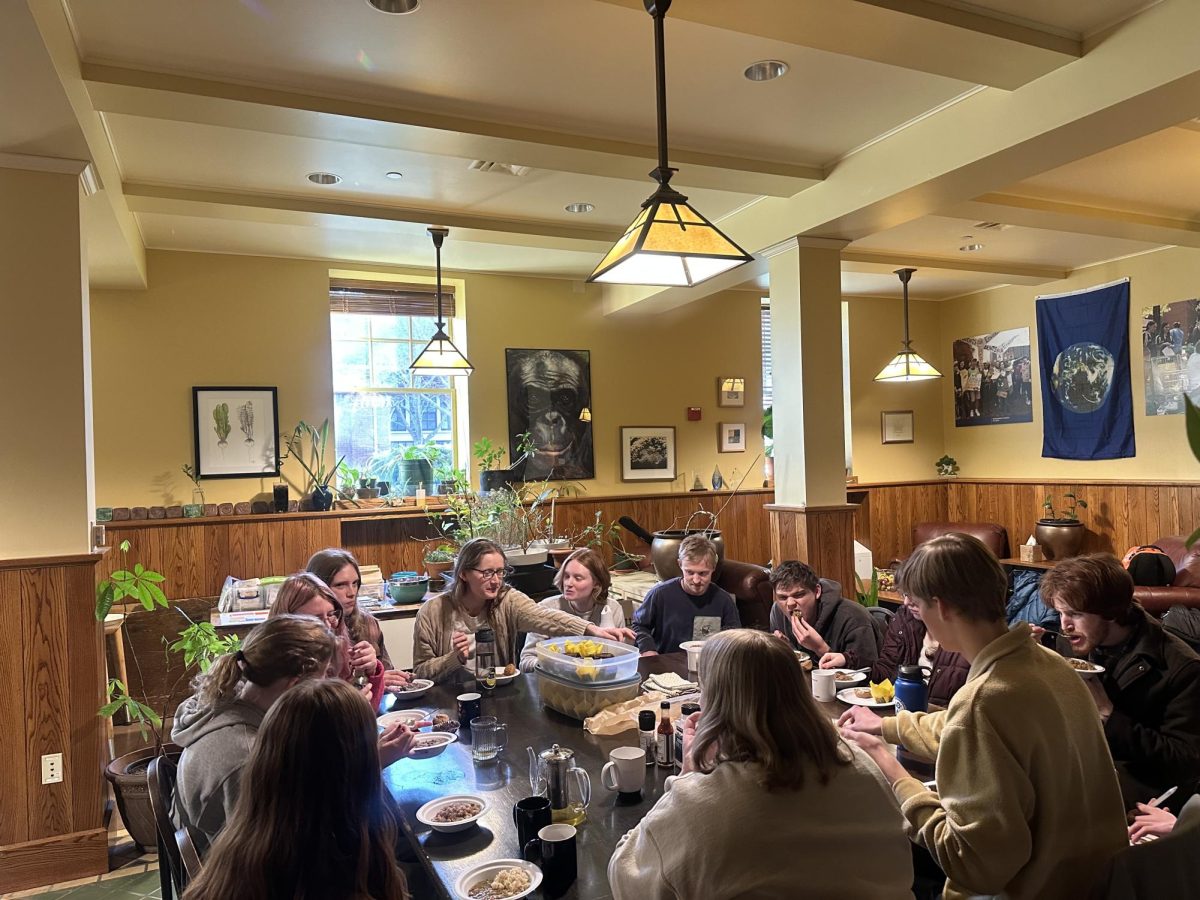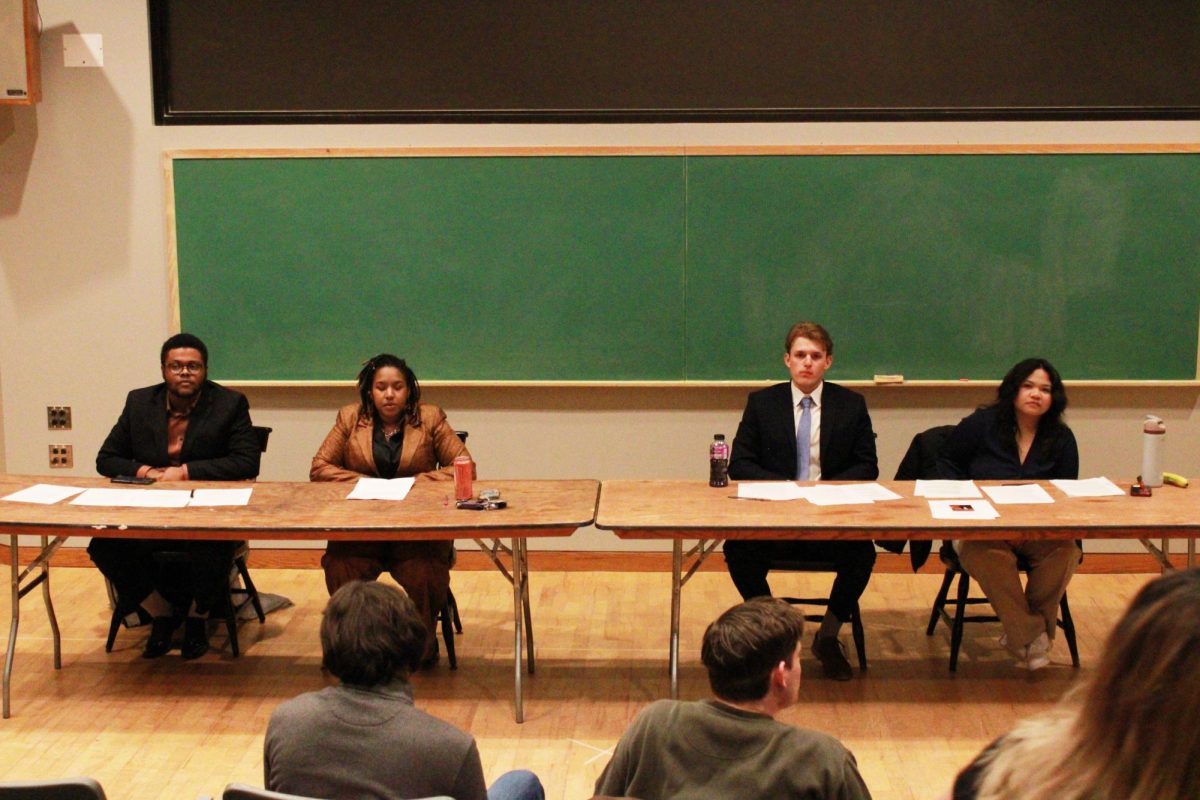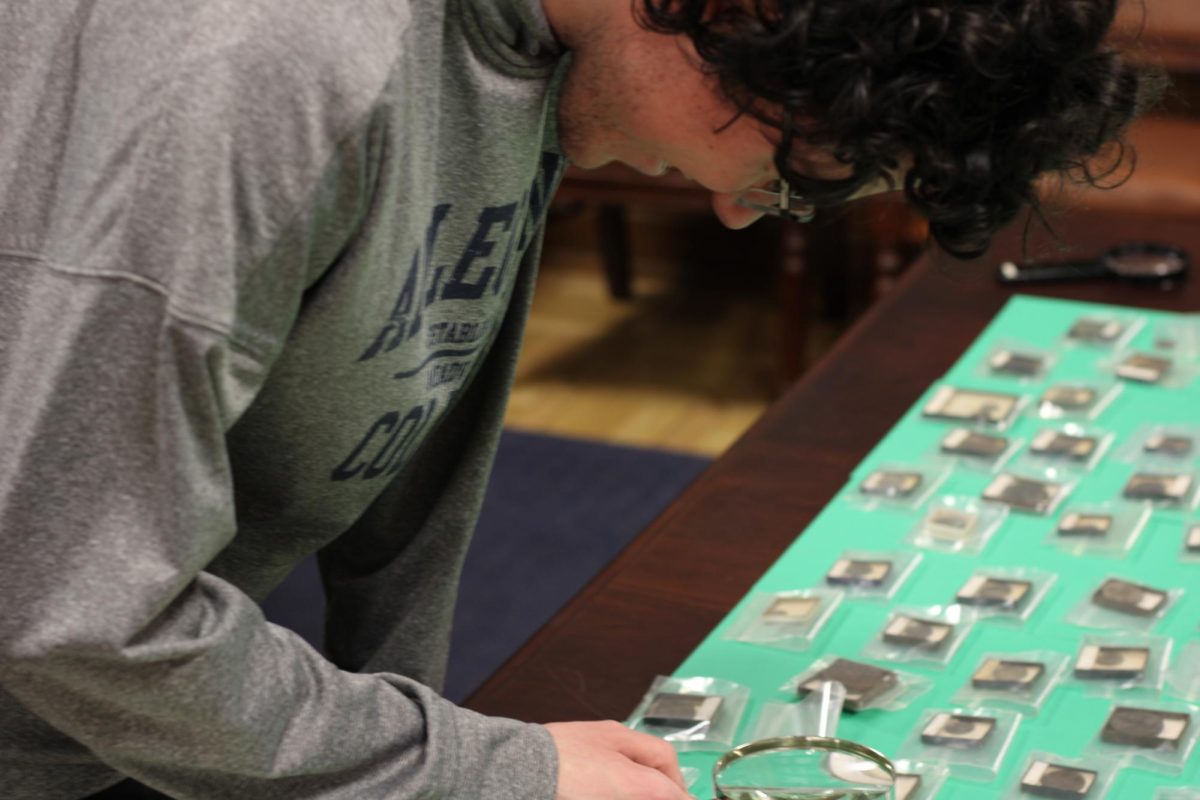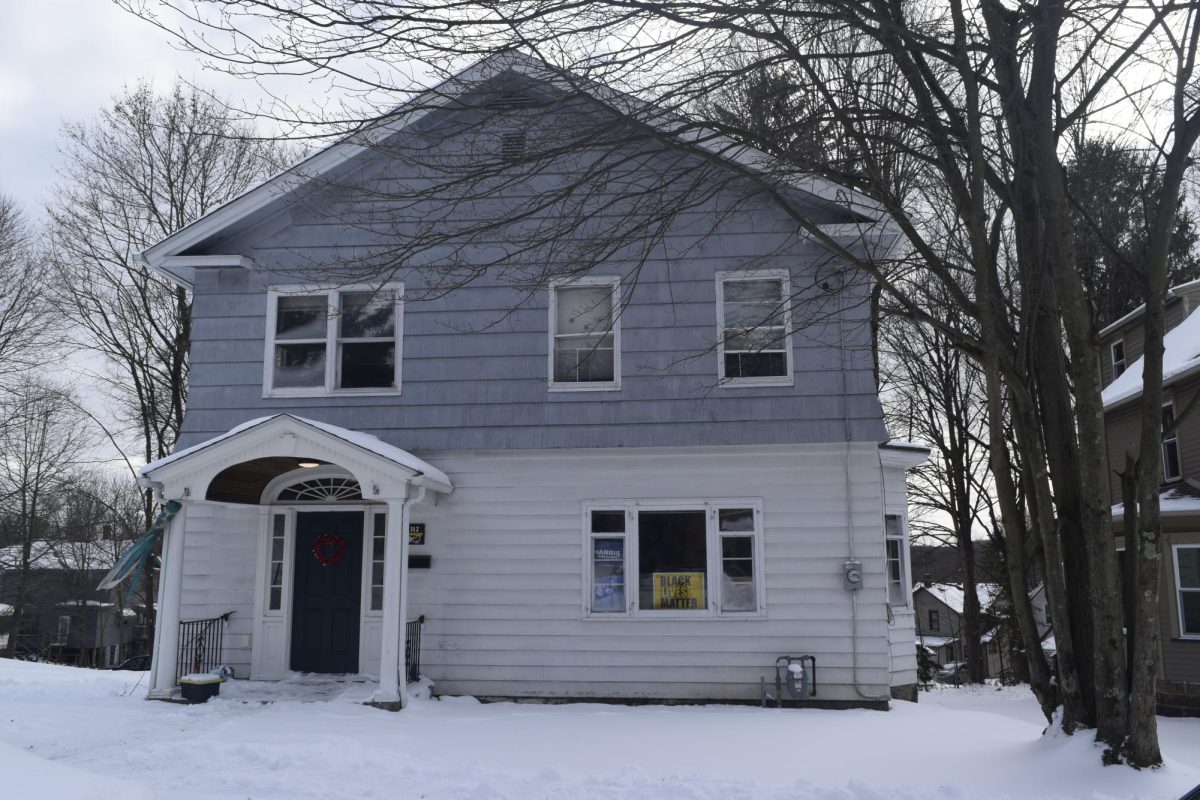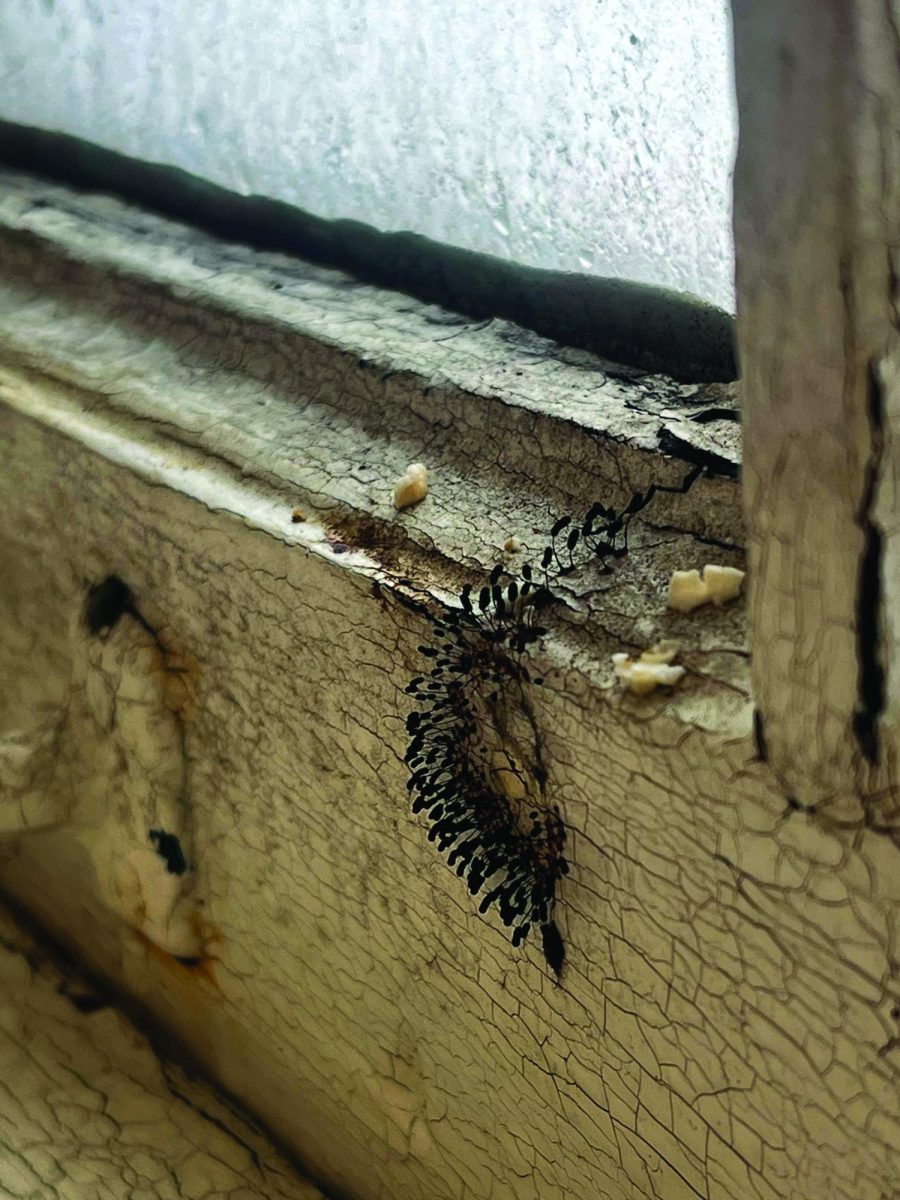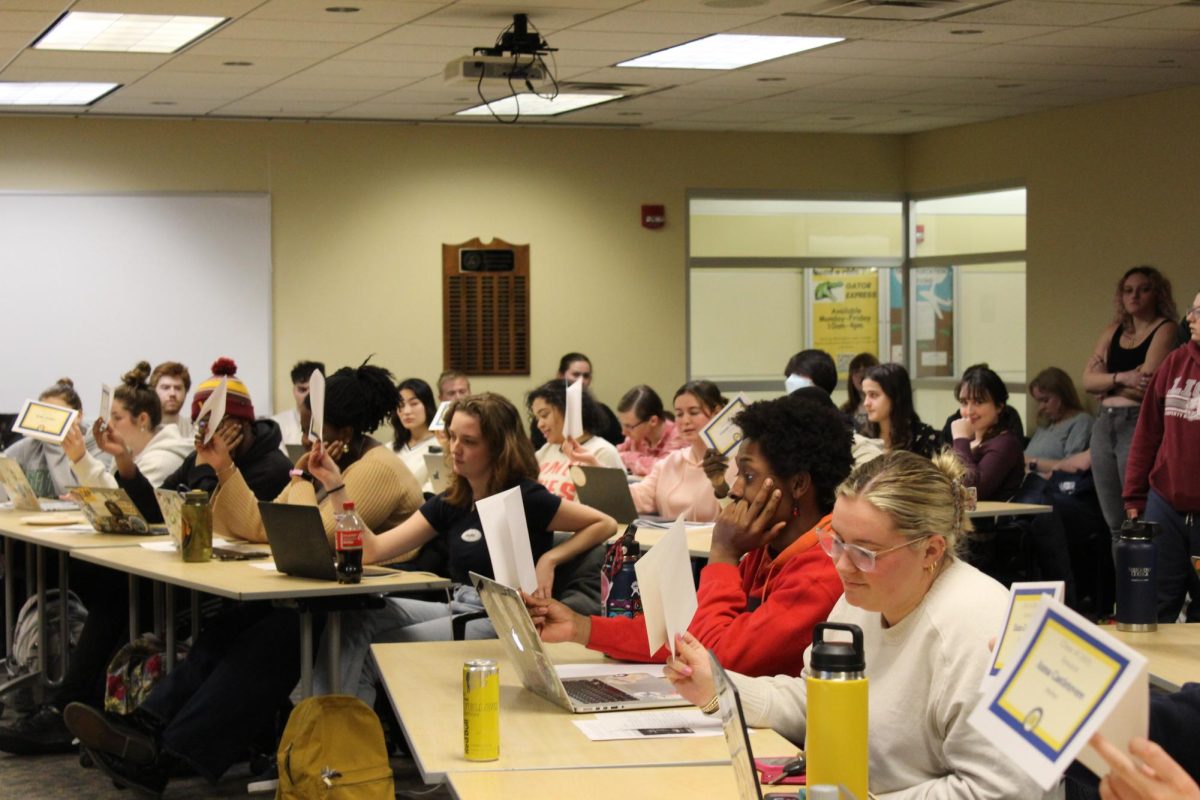ASG Co-Director of Student Affairs London Dejarnette, ’24, alleged a culture of ASG discouraging internal dissent in a wide-ranging interview Wednesday afternoon, painting a behind-the-scenes picture of the current ASG cabinet that suggests ASG’s public image has become a higher priority than solving problems. Responding to Dejarnette’s statements, ASG leadership offered a sharply contrasting image of how the organization works.
“I’m concerned about the election and I’m concerned about our constituents knowing that we’re not working internally in the ways that we should be,” Dejarnette said. “And I think that it’s clear, I think that that’s why people have so many grievances for ASG.”
In one particular incident in mid-February, Dejarnette said they and their co-director, Iris Styers, ’26, were criticized for applauding constituent criticism of proposed constitutional amendments during a General Assembly.
At the Feb. 13 GA, Attorney General Will Lowthert, ’24, recommended a series of constitutional amendments, including merging six cabinet positions into three. Under Lowthert’s proposal, Organizational Development would be added to the Chief of Staff portfolio, Parliamentarian would be added to Attorney General, and Environmental Affairs and Sustainability would be added to Student Affairs.
That final recommendation — to eliminate the permanent sustainability position — was criticized by both Dejarnette and the former ASG Director of Sustainability Bianca Sanchez, ’24, who announced her resignation in the Dec. 5, 2023 GA.
“Now we’re deciding to put more work onto a few cabinet members, given the fact that, yes, some of these roles may not have as much work even when they are filled,” Sanchez said during the meeting. “But the roles that they are being added to have enough work to begin with — and let alone students do not have enough time to be even doing more work as it is.”
Sanchez’s last line received a“knocking” of applause on the cabinet table from Dejarnette and Styers.
“When Bianca said that, it felt really affirming to me,” Dejarnette said. “I thought it (the knocking) was just an act of expressing the way that we stood, especially because that wasn’t verbalized by us during the meeting because it was constituent comments.”
ASG General Assemblies begin and end with constituent comment periods, during which constituents are the only people who can talk. Cabinet members are not permitted to voice their opinions on topics during constituent comment unless senators initiate a discussion.
Once the meeting was over, Dejarnette said they and Styers were told by Vice President Sam Ault, ’26, to immediately go to the ASG office, where they were joined by Lowthert and Dean for Student Life Trae Yeckley. Lowthert then allegedly told Dejarnette and Styers that their support of Sanchez felt like a slap in the face after the work he had put into drafting the amendments.
“I expressed that it was something that I disagreed with, and I think that it is a part of our democratic process to have the forum to express dissent,” Dejarnette said. “And he immediately switched into a narrative of the fact that The Campus was there.”
According to Dejarnette, Lowthert was concerned that Dejarnette and Styers’ support of Sanchez gestured to a divided administration and would worsen ASG’s image — one already sinking under the weight of empty seats and perceived organizational inefficiencies that are slowing down club programming.
“The image of ASG is perpetually getting worse on campus and ASG is keenly aware of that and they’re more invested in addressing that image and, honestly, punishing dissent than they are in rectifying these issues and creating a more democratic process,” Dejarnette said. “I think it’s really important that students know that we don’t agree and that was the point that I was trying to make in knocking, is that ‘Listen, I don’t agree with this.’ And I think that students should know because if students know, then maybe it’ll raise some concerns.”
In addition to Lowthert’s criticisms, Dejarnette said that Ault criticized them for not bringing concerns forward before the GA — even though, according to Dejarnette, it was no secret to members of ASG’s cabinet that they did not agree with Lowthert’s recommendations.
Although Dejarnette was not present at the Feb. 5 cabinet meeting where Lowthert first proposed the constitutional changes, Dejarnette said they spoke to Lowthert after the Feb. 6 GA to convey their concerns about merging the director of sustainability role with student affairs.
“It wasn’t news to anybody that I didn’t support the consolidation, it was just the way that I’d approached it that they were not happy with,” Dejarnette said. “Particularly the visibility of it was the utmost concern — was the way that it would reflect on ASG.”
Dejarnette also said that they were told they should have used ASG’s “conflict resolution resources” — which Dejarnette said was just a reference to the dean of students.
“The problem with that statement is that there are no internal conflict resolution resources,” Dejarnette said. “We have Trae’s guidance. The problem with that is because Trae is so overworked in a number of capacities internally in the college, that mechanism is not working.”
Ault did not respond to a request for comment on the Feb. 13 GA.
Dejarnette said that the conversation ended in an argument with raised voices.
“We started shouting at each other, essentially, and that was when Trae was like ‘You guys need to stop,’” Dejarnette said, adding that Yeckley said the group should meet to “rectify” the issue at a later date, and needed additional training on procedure.
After they left the ASG office, Dejarnette said they were ready to quit student government altogether.
“In that meeting, I said, ‘If you guys have more of a problem with your cabinet body expressing their concerns than you do actually addressing those concerns, this is not an organization that I feel aligned with just based on its philosophy,” Dejarnette recalled.
They are sticking around because they see the work of Student Affairs — which includes distributing pads, tampons and condoms, as well as bringing STI testing to campus and coordinating dining feedback — as “incredibly important aspects of student life on campus.”
Although Dejarnette met with Yeckley to discuss the issue one-on-one, Dejarnette said they have not met with Yeckley, Lowthert, Styers and Ault as a group, and feel as though the issue has yet to be resolved.
Yeckley declined to comment, saying the issue was “an internal ASG matter.”
The Feb. 13 incident is the latest in a series that left Dejarnette concerned that they could not speak freely.
“I fear that I’ll talk out of line, or I’ll do something that will be viewed as unacceptable behavior for a cabinet member,” Dejarnette said. “Because I’m not even clear what it is that we are not expected to do like. Because if speaking out of line — and not even speaking out, if knocking out of line is worth the result that it had, then it begs the question of what is it that we are allowed to? What are the mechanisms for expressing our concerns with the internal functionality of the organization?”
In an interview late Wednesday, Lowthert declined to comment on the specifics of what he said was “an internal ASG conversation.”
“During my time in ASG, I have felt that the organization has empowered all members to freely give their opinions and perspectives, and that’s what I think makes this organization so wonderful to be a part of, as we are always working to share and collaboratively develop ideas that benefit the campus community,” Lowthert said.
ASG President Nicole Recio Bremer, ’25, was not present at the Feb. 13 GA or the meeting after, and declined to comment on the conversation.
“This year I have been working on building a strong bond between cabinet members to demonstrate positive ASG leadership to our Allegheny community,” Recio Bremer wrote in an email Wednesday. “My leadership as president has and will always be supporting students and cabinet members in anything they might need. Every member of my cabinet knows how much I appreciate and value their work. If there are any internal disagreements within cabinet members it is my job to keep everyone together as a whole and find ways for people to work with each other. I will continue to do so for the reminder of my term.”
Since there has been no training and the group has not addressed it again, according to Dejarnette, coming to The Campus was their “last resort.”
“I really do not know what is the course of action, because there is no clear conflict resolution resources,” Dejarnette said. “It’s not that I didn’t want to come to you guys, but doing so feels incredibly intimidating. Not because of the presence that you guys serve, but because of the way that we have been advised to be cautious about the way we talk to you guys, particularly about ASG matters.”
ASG next meets at 7:30 p.m. on Tuesday, March 26, in room 301/302 of the Henderson Campus Center, Check the April 5 print edition for further reporting on ASG’s internal culture.





